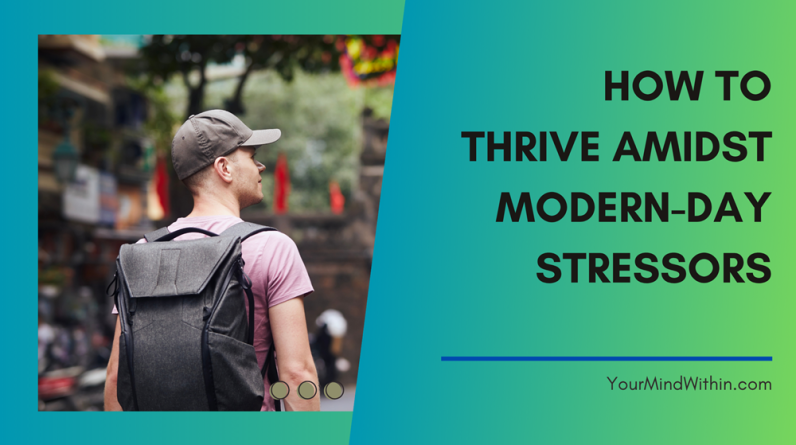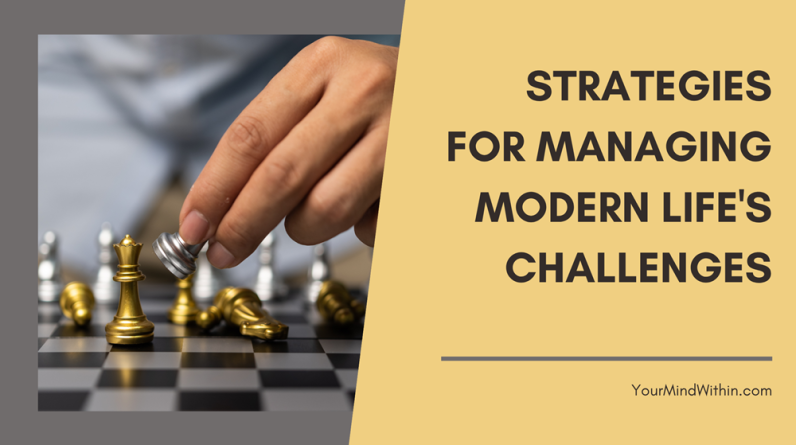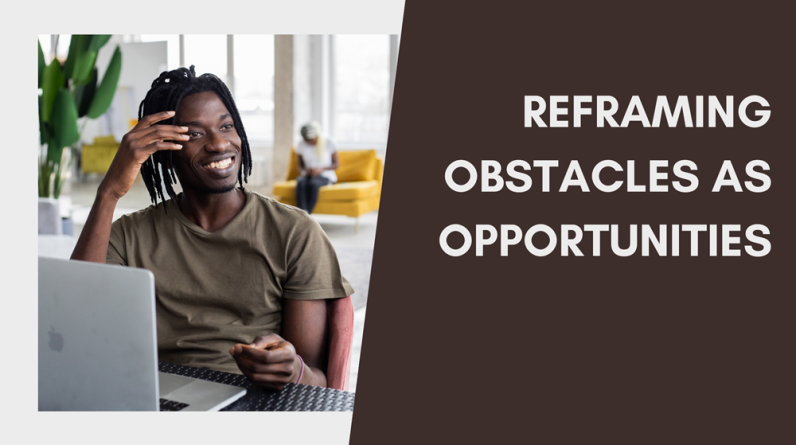
Do you find yourself constantly surrounded by chaos and drama?
Have you ever stopped to consider whether you're actively courting it? Or do you think it's a normal thing everyone deals with?
“In a culture where the ‘extreme theme’ has become the norm, people are increasingly seduced into believing that intensity equals being alive. When that happens, the mind becomes wired for drama and the soul is starved of meaningful purpose.
This type of life may produce heart-pounding excitement, but the absence of this addictive energy can bring about withdrawal, fear, and restlessness that is unbearable." - From the book: Addicted to Chaos: The Journey From Extreme to Serene. Dr. Keith Lee
The reality is that some people are attracted to chaos and drama, and whether they realize it or not, they are gravitating toward the people and things that stir it up.
There are also those who actually set up drama in their lives, whether they do consciously or subconsciously.
Internal Versus External Chaos
Chaos is a concept that can manifest in various forms and understanding the distinction between internal and external chaos is important in addressing the issue.
Internal chaos refers to the turmoil within our thoughts, emotions, and psyche.
External chaos is the disorder and unpredictability that exists in our surroundings and experiences.
Both types of chaos can have profound effects on you and your life, and influences wellbeing, emotional and mental health, relationships, and overall sense of stability.
Internal Chaos
Internal chaos refers to confusion and turmoil that exists within an individual.
Signs include
Emotional Turbulence
Whirlwinds of emotions including anxiety, anger, sadness, or frustration. When emotions are unresolved or suppressed, they can lead to a state of chaos within.
Overwhelming Thoughts
A mind filled with racing thoughts, self-doubt, and constant worry can create a chaotic mental environment. This can lead to difficulty concentrating, indecisiveness, or a sense of being overwhelmed.
Lack of Clarity
Internal chaos often results in a lack of clarity regarding one’s goals, values, or desires.
Fear and Insecurity
Internal chaos can also manifest as fears about the future or insecurities about oneself. These fears can be paralyzing, making it challenging to take action or embrace opportunities.
Causes of Internal Chaos
Trauma and Past Experiences
Unresolved trauma can create a chaotic inner landscape. Memories of past experiences can resurface and disrupt emotional equilibrium.
Stress and Pressure
High levels of stress, whether from work, relationships, or life changes—can contribute to internal chaos. This stress can lead to emotional exhaustion and a feeling of being out of control.
Perfectionism
The desire to achieve perfection can create a chaotic mental state, leading to relentless self-criticism and anxiety when expectations are not met.
Lack of Self-Understanding
A disconnection from one’s feelings, values, and beliefs can lead to confusion and chaos.
External Chaos
External chaos refers to the disorder and unpredictability in one’s environment.
This can include chaotic situations, demanding life circumstances, or the unpredictability of the world at large. A cluttered living or work space.
Sudden changes or crises
This includes job loss, relationship breakdowns, or natural disasters—can create chaos in an individual’s life.
Social relationships can become sources of unpredictability.
Information Overload
In our digital age, the constant influx of information can lead to external chaos.
Causes Of External Chaos
Life Transitions
Significant life changes—such as moving, changing jobs, or becoming a parent can create external chaos as individuals navigate new responsibilities and environments.
Cultural and Societal Factors
External chaos can also arise from societal issues such as political instability, economic uncertainty, or social unrest.
Technology
The rapid pace of technological advancement can create a sense of chaos, as individuals struggle to keep up with new tools, platforms, and expectations.
Signs You're Attracted To Chaos and Drama
You're always at the center of the storm – if there's chaos, drama, or a crisis, you're always at the center, desperately trying to scoop water out of a sinking ship. If there's always a crisis to solve, that's a problem.
You love to be the center of attention and hate it if you're not. You're happy to seek out any type of attention, even negative, because it fills an emotional void.
You aren't just the one who starts fights, you might even go out of your way to pick them.
Additionally, those fights often descend into you yelling or screaming as you try to make your point.
Not only do you reenact the stories you tell, but you also use exaggerated language to make the situation seem more dramatic.
If you present with any of these signs, it may be that you're dealing with an addiction to chaos and drama. You cope with high stress and anxiety, and then you get a rush that pushes you to continue the cycle.
The Why Behind The Drama
If you grew up in chaos and drama, you were raised to be this way. It doesn't give you an excuse to continue the behavior, but it could explain why you're addicted to constant stress and chaotic events.
It could be that you're addicted to the adrenaline that comes with chaos, especially if it was your normal growing up.
When you have unpredictability in early relationships or there's neglect, you will naturally seek out a similar dynamic in your adult relationships, both romantic and platonic.
If you don't have healthy coping mechanisms to turn to or understand how to regulate your emotions, you're going to struggle to break the cycle and the behavior you learned in childhood will continue.
That inability to regulate emotions often leads people to seek chaos and drama as a way to manage their emotions.
If chaos and drama are normal to you and it takes someone else to point it out, that's a sign it's time to seek help to resolve the lingering trauma.
If you feel secure when you're faced with a crisis or you subconsciously seek out chaos and drama when you're bored, you need to get a grip of it before it ruins your life.
Ways To Minimize Chaos And Drama
“Recognizing our own internal chaos, what it means, and what it means for us is an important aspect of self-discovery and personal evolution. Recognizing external chaos isn't hard, but learning to separate it from our internal chaos is important in developing a sense of self-responsibility and social accountability.” - Psychology Today
The first step in overcoming the issue is recognizing that you are the common denominator for the chaos and drama in your life.
The next step is to stop courting it, which means not getting sucked into everyone else's drama.
You might love hearing all the gossip from Mary at work and it might be great to listen to Tom next door talk about the family drama he's got going on, but you can't make yourself part of the story or get too involved.
Managing Internal Chaos
Mindfulness and Meditation
Practicing mindfulness can help individuals become aware of their thoughts and feelings without judgment. Meditation can create a sense of calm and clarity, reducing internal turmoil.
Journaling
Writing down thoughts and emotions can provide an outlet for expressing feelings. Journaling can also help individuals gain insight into their internal chaos and identify patterns.
Therapy
Speaking with a therapist or counselor can be beneficial in navigating internal chaos. Professional support can provide tools for understanding and processing emotions.
Setting Boundaries
Establishing personal boundaries can help reduce stress and create a sense of safety. This may involve saying no to commitments that add to internal chaos.
Self-Care Practices
Engaging in self-care activities such as exercise, healthy eating, and spending time in nature can support emotional and mental well-being, reducing internal chaos.
Emotional intelligence is the ability to understand and manage one’s own emotions and empathize with others. This is key to managing internal chaos.
With strong emotional intelligence, we’re more likely to identify what’s bothering us, whether it’s disappointment, frustration, or fear.
Emotional intelligence also helps us communicate these feelings effectively, either through self-talk or discussions with others.
Developing emotional intelligence takes time, patience, and practice, but it can be transformative in helping us feel grounded and resilient in the face of inner chaos.
This is a skill that can be cultivated through consistent self-reflection, empathy-building, and learning to respond to emotions with understanding rather than judgment.
Managing External Chaos
While we may not have control over external circumstances, there are strategies to manage the impact of external chaos.
Create Order
Establishing order in one’s environment can provide a sense of control. This can involve decluttering, organizing, and creating routines.
Limit Exposure to Chaos
Reducing exposure to chaotic environments or stressful situations can help maintain a sense of peace. This may involve setting boundaries in relationships or limiting media consumption.
Develop Coping Strategies
Learning and implementing effective coping strategies, such as deep breathing, exercise, or creative expression, can help individuals navigate external chaos.
Cultivate Resilience
Building resilience allows individuals to adapt to challenges more effectively. This can involve developing a growth mindset and focusing on solutions rather than problems.
Seek Support
Leaning on friends, family, or support networks can help individuals navigate external chaos. Sharing experiences and seeking advice can create a sense of connection and understanding.
Final Thoughts
Life is about joy, so you need to seek out good news, positivity, and happiness. That means surrounding yourself with other happy people instead of spending time with people who sow chaos and drama.








